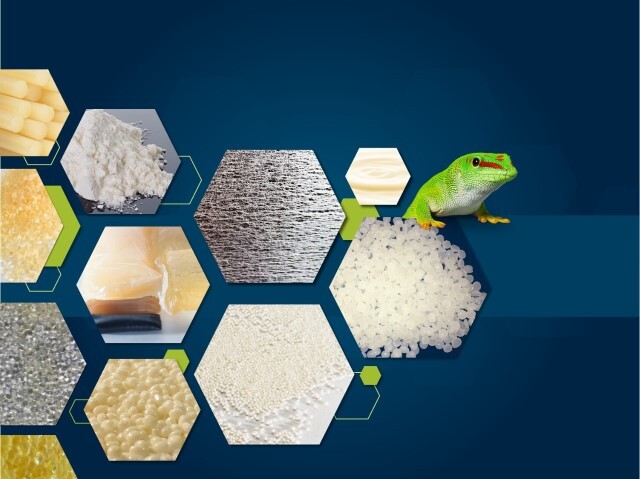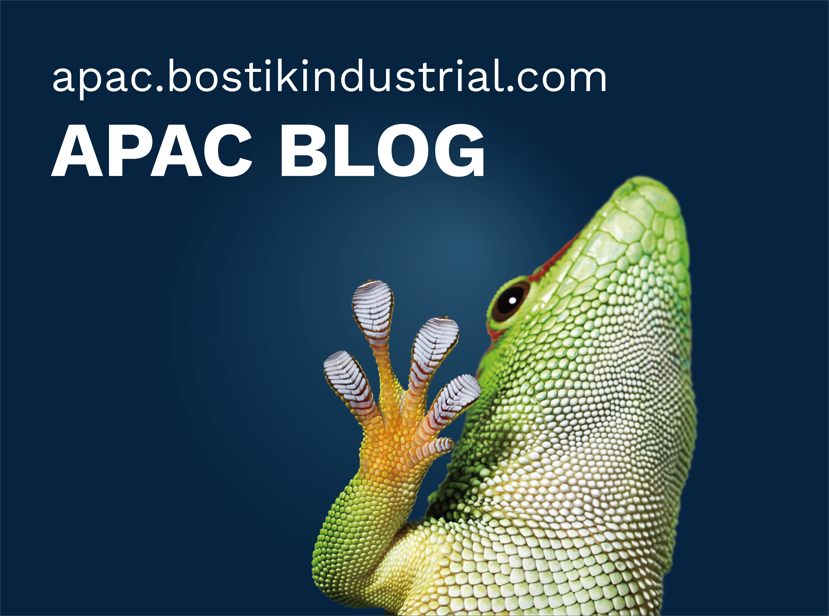Water-Based Adhesives
What are Water-Based Adhesives?
These adhesives are liquid during the application process and become solid when drying as the water evaporates. They are formulated with polymers dispersed in water and then combined with other ingredients, such as plasticizers, fillers and additives. Here’s a breakdown of what each aspect does:
- Polymers: enable the adhesives to offer basic bonding properties through cohesion and adhesion
- Plasticizers: soften the glue with the charges making it possible to avoid having a brittle film, a reduce the rigidity, which allows a better bonding.
- Other ingredients: allow the adhesives to maintain bonding performance over time under varying conditions
Water-based adhesives have great heat resistance, they are valued for their compatibility with recyclable substrates, low VOC content, easy clean-up, no odor, and versatility. Water-based adhesives can replace solvent-based adhesives to reduce VOC emissions, but require a longer drying time than the latter.
Water-based adhesives can be applied with stainless steel nozzles or rollers, with the right formulation and viscosity, can help you handle any application that comes your way.
Water-Based Adhesive applications
Why use Water-Based Adhesives in Automotive?
Available in one and two-component chemistries, water-based adhesives are an ideal option for interior automotive applications, offering the following benefits:
- Increased performance with high green strength (edge wrapping), the ability to adhere to untreated plastics, such as ABS and PP, and superior temperature resistance (up to 110°C)
- Enhanced efficiencies with 2x efficient re-activation (lamination + edge wrapping) as well as short setting and pressing cycle times
- Improved working conditions with solvent-free, low Volatile Organic Compounds (VOCs), and low activation temperatures
- Heightened workability with an integrated hardener directly within the formulation for certain regions
Featured products for automotive
- High Green Strength for stronger bonding, faster assembly, and better design flexibility.
FEATURED PRODUCT: VINYLEX 115R
- Reduced Production Complexities: With direct adhesion to low surface energy, our water-based adhesives require less surface prepare and fewer products compared to other technologies.
FEATURED PRODUCT: AQUAGRIP 3720
- Decreased Energy Usage: Offering low activation temperatures, the adhesives help you lower your overall carbon footprint.
Why use Water-Based Adhesives in Packaging?
Ideal for board lamination, box, and case, bag and snack food, confectionery, and food label applications, water-based adhesives make it easy for package manufacturers to meet key initiatives due to their ability to:
- Reduce environmental footprint: Solvent-free and low-VOC, these solutions also enable up to 98% of other bio-based materials to be incorporated and require little to no heating during the application process, which reduces energy consumption.
- Improve quality: Water-based adhesives offer great resistance to heat and moisture, are low odor and can provide UV-tracer options.
- Expand design options: These solutions can also replace plastic film
Water-based adhesives can be used in the following packages:
- board lamination to produce compact structures, lamination of the fluted board to make corrugated board, lamination of PE or PP to board to create duplex structures.
Box and cases for side seam bonding during manufacturing.
- box and cases for side seam bonding during manufacturing.
- bags and snack packaging manufacturing with lamination of PE or OPP film to cardboard, spot lamination of PE to paper, longitudinal bonding of the side seam of paper bags, bottom gluing of paper bags, handle attachment for paper bags, and snacks.
- labelling water-based solutions for general purpose and specialty labels.
A cold seal is a converter-applied coating. Cold Seals may give the substrate tear but can also give easy opening characteristics. The typical based substrates are Coex OPP, Polyester, Polyethylene, Paper, and Aluminium.
Turbo-Seal® C2881U is a low foaming, fast-drying cohesive coating suitable for application via high-speed converting equipment. It is designed for mono web conversions that utilize a release lacquer, or coated on lamination structure. It is a self-seal product, has good balance between adhesion and cohesion.
Why use Water-Based Adhesives in Tissues & Towels?
Water-based adhesives can meet your expectations in tissue and towels applications thanks to the following features:
- High safety conditions (solvent, VOC, fire, FDA compliant).
- Suitable for versatile bonding required for some tissue and towel applications.
- Fast setting (no reaction, immediate bonding).
- Easier to process (less maintenance, no need to recycle the solvents).
- Environmental care with bio-based materials.
Bostik has a wide range of water-based adhesives suitable for tissues and towels. There are four types of glue on toilet paper. Each of them has specific characteristics:
- The core making [1] is used for bonding cardboard to cardboard. It requires permanent glue and can be applied by a wheel, slot, or cascade.
- The pick-up [2] is used for bonding cartons to paper. It requires a fugitive bond and can be applied by blade, wheel, spray, fountain.
- The laminating [3] used for bonding paper to paper requires a permanent bond. It can be applied by the roll.
- Tail tie [4] is used for bonding paper to paper. It requires a fugitive bond and can be applied by blade, spray, or fountains.
Aquagrip XV15 is suitable for forming tube cores with various types of paper and board.
FEATURED PRODUCT: Aquagrip XV 15
Aquagrip TLK 115 is a bio-sourced water-based adhesive, suitable for the lamination of embossed tissue for the production of toilet paper and towels.
Why use Water-Based Adhesives in Leather Goods?
Water-based adhesives work well for many leather good applications, such as wallets, bags, and belts, and offer the following benefits:
- Improved aesthetics: Water-based adhesives help leather goods appeal to consumer preferences over the product’s lifetime by possessing sufficient bond strength and durability across fabric types.
- Enhanced production flexibilities: These solutions can be applied manually or robotically and at room temperature or a hot reactivation step between 60 and 80°C, depending on what works best for specific production needs.
- Increased worker safety: With low odor, low VOC, and solvent-free conditions, water-based adhesives make it safer for workers compared to other technologies.
- Reduced costs: By offering instant bonding, they decrease cycle time (setting and pressing), ultimately lowering overall costs.
You can find water-based adhesives in various leather goods such as small leather goods (wallet, cardholder, belt), bags (handles, shoulder strap, bag reinforcement), and others. We have an adhesives portfolio that adapts to a wide variety of materials used in leather goods.
Aquagrip 620F is ideally suited for leather goods. This adhesive allows you to shift from solvent-based to solvent-free adhesives successfully.
Why use Water-Based Adhesives in Building and Construction?
Able to be used as a lining adhesive or in plasterboard manufacturing, water-based adhesives are helpful for various building and construction applications, such as partitions and insulation panels, enabling:
- Efficient and practical application: roller applications, room temperature.
- High strength bonds with little or no need for nails and screws.
- Regulatory compliance and improving working conditions with low odors and low Volatile Organic Compounds (VOC).
- Versatility as any conventional construction adhesive.
- Improved moisture resistance and easy clean-up properties.
- Cost-effective solutions compared to other technologies.
Water-based adhesives are versatile and suitable for a variety of building and construction applications, especially for partitions and insulation panels. Water-based adhesives can be used for example as a lining adhesive, or to manufacture plasterboard.
Tarbicol DB40 allows to bond plasterboard on an insulating panel (expanded polystyrene, rock wool, polyfoam, and others). It is a VOC-free adhesive that has replaced a urea-formaldehyde glue.



